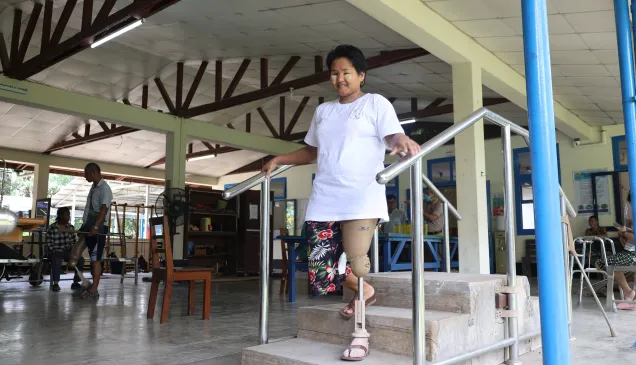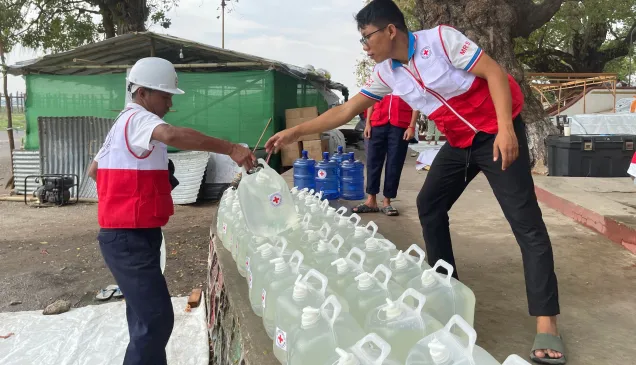Myanmar: The impact of community support in Mrauk U, Rakhine
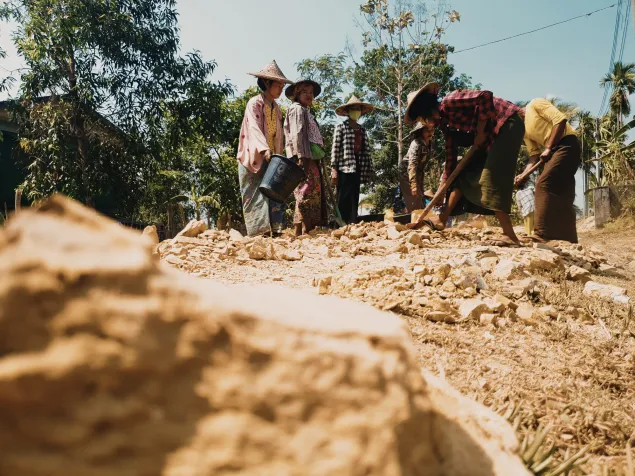
“We had to return because there was no way to make a living at the camp and our livelihood is here. But the roads are severely damaged since they were abandoned for more than three years,” says Oo Aung Thein Kyaw, a leader of Ywar Haung Taw village.
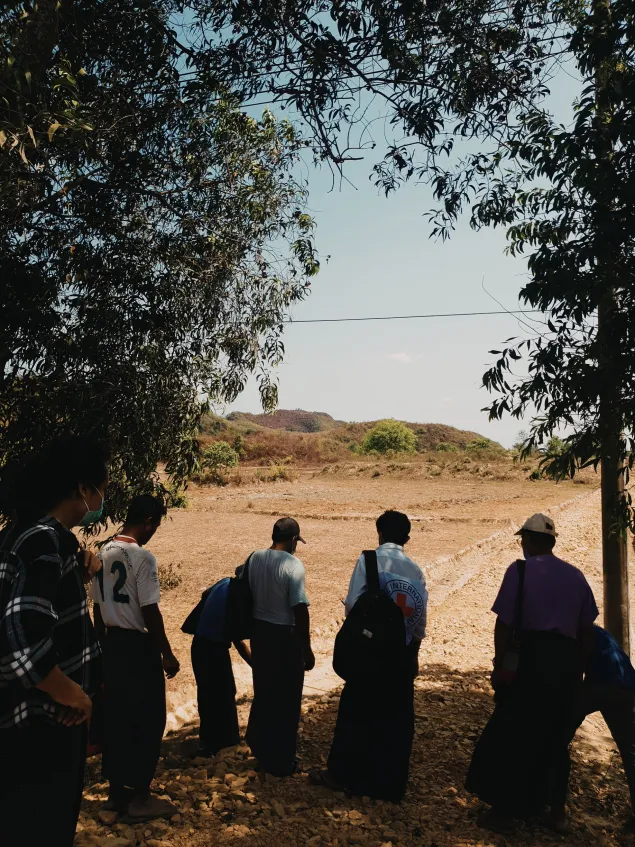
The ICRC team in Mrauk U recently met with communities to identify their most urgent needs.
Damaged roads posed challenges to the villagers' daily livelihood and social activities, prompting our support to help repair the roads.
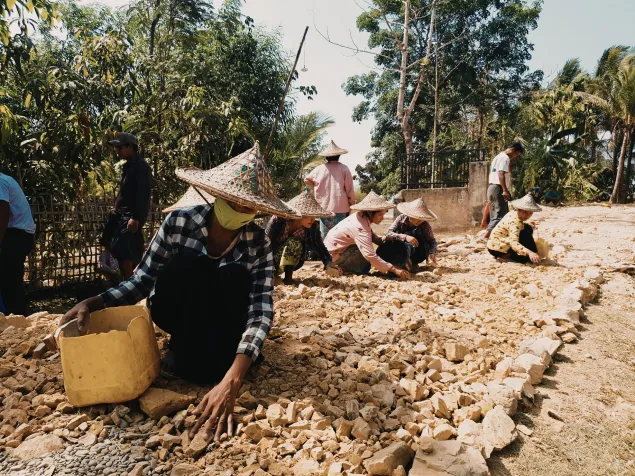
More than 170 people, including those living with disabilities, have come together to repair the roads from dawn till dusk.
“I don't realize how time passes because we talk and work at the same time,” says Ma Oo May Thein, a tailor by trade and a member of the working group.
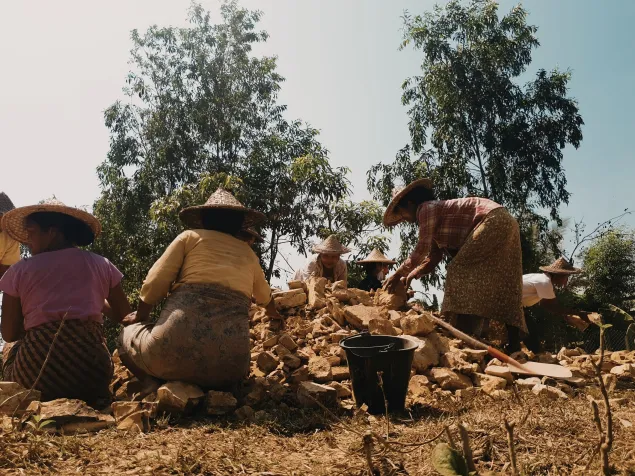
Our goal with this effort is to support community livelihoods by providing job opportunities.
“Even though they have returned home, the impact of COVID-19 and economic challenges have made it difficult for villagers to re-establish a livelihood,” explains Pyae Sone Tun, from the ICRC team in Mrauk U.
“After the roads are repaired, it will become easier for them to travel, work and collect water.”
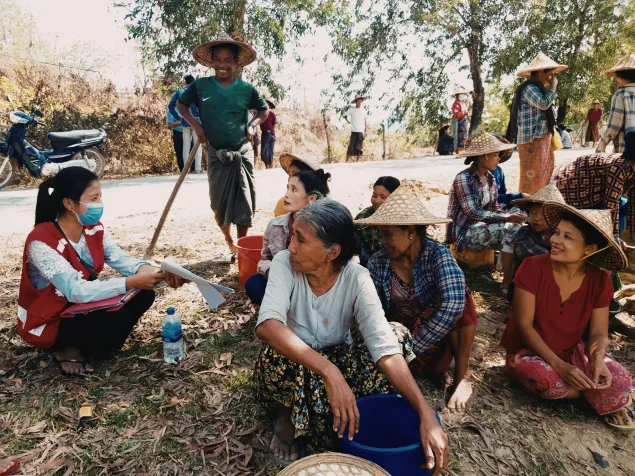
The project is carried out in partnership with the community and the Myanmar Red Cross Society.
Every day, Myat Hnin Wai, a Red Cross volunteer, visits this village to meet and talk with people – to hear about their challenges and offer help. “People are incredibly motivated and united. Seeing them work happily together makes me happy as well,” says Myat Hnin Wai.
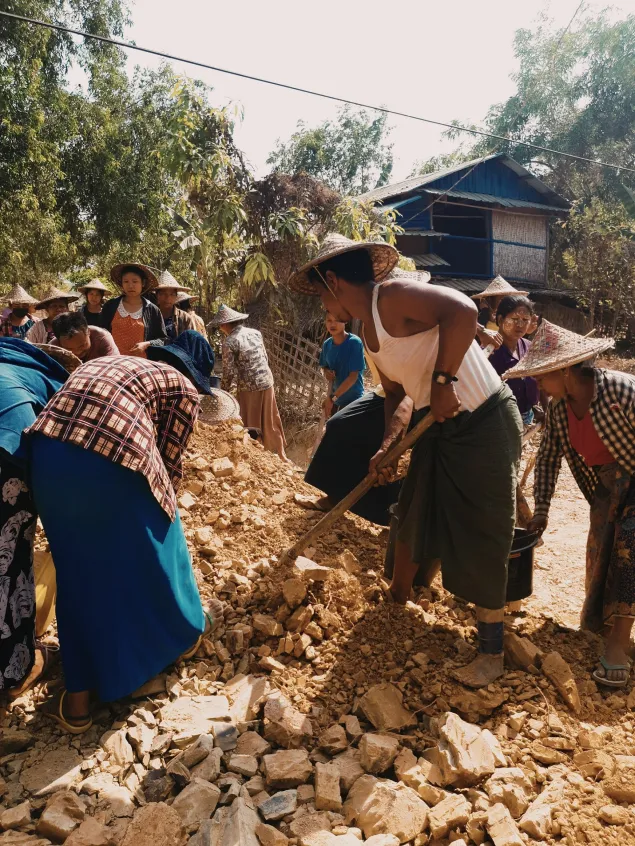
Despite the challenges, the people of this village continue to help one another in any way they can.
“I lost my leg to a landmine, but it doesn't stop me from working because my friends give me a hand every now and then,” says U Zaw Lwin, a villager participating in the project.
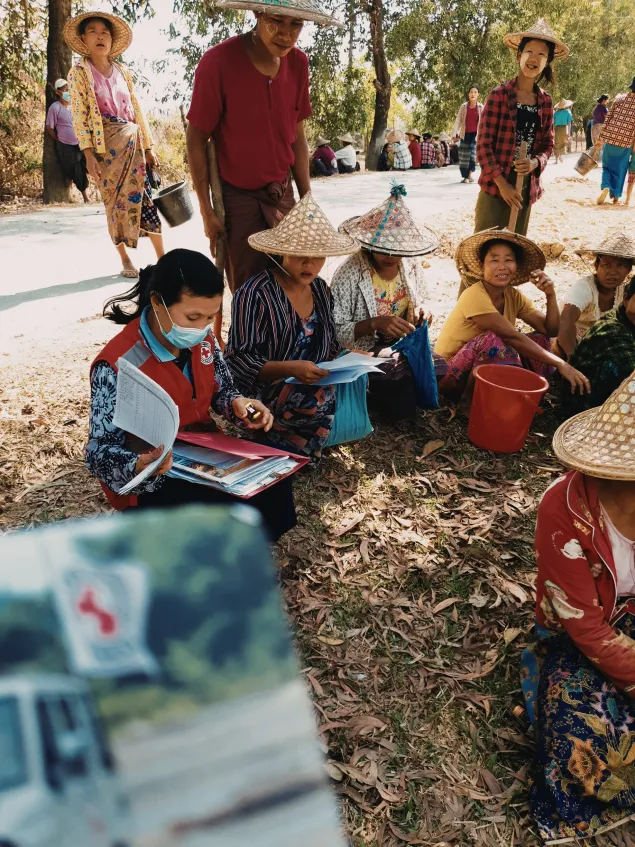
In Rakhine, as across the country, we are committed to working together with all communities, providing humanitarian aid to people affected by armed conflict. We remain neutral and impartial in all our work.
The armed conflict that broke out in Rakhine State in 2019 impacted many villages, leading to the displacement of thousands of people and causing overlapping humanitarian challenges.
Ywar Haung Taw village in Mrauk U Township is one of those areas affected by violence, with its residents forced to flee their homes and seek shelter in Chit Thaung camp until recently.


